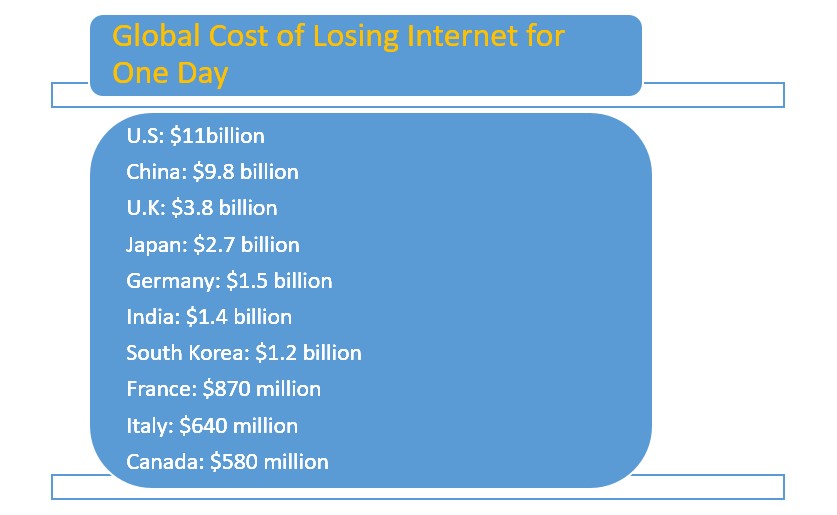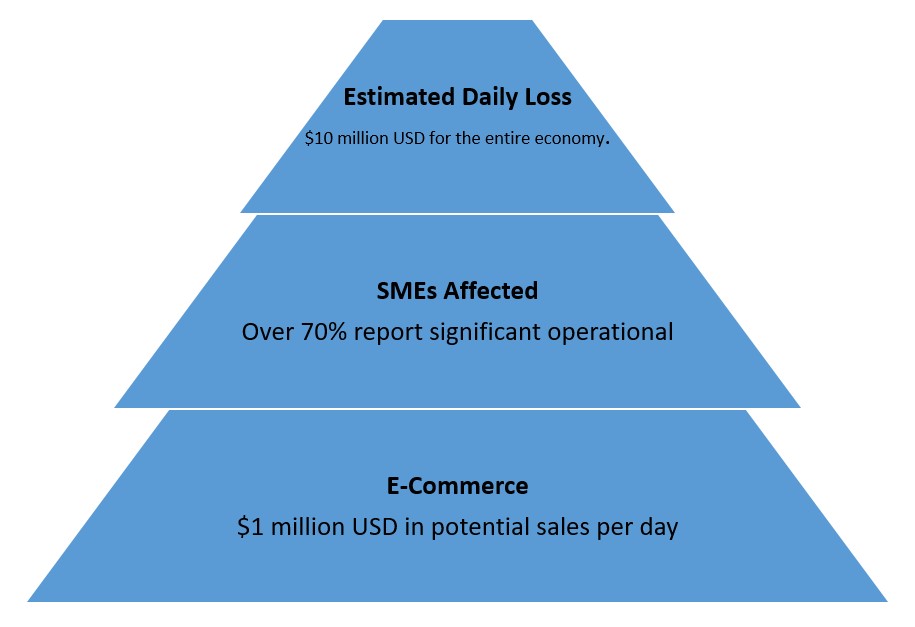Pakistan recently experienced a nationwide internet outage. The outage occurred just one day after a group of internet service providers (ISPs) claimed that a major statewide slowdown in services was caused by the government’s increased attempts to monitor internet traffic.
This isn’t the first time such an incident has occurred, and it raises some critical questions about the reliability of our digital infrastructure.
Users of famous internet applications like Facebook and WhatsApp have faced substantial difficulties since last week.
Many users have complained about slow performance and difficulties using these popular social media and messaging apps.
Moreover, freelancers have encountered a number of difficulties, such as missed project deadlines over the last few weeks.
A number of accounts in Pakistan were previously rendered “unavailable” by the online freelance marketplace Fiverr.
What is the Cause of Internet Outage?
So, what exactly caused this outage? Understanding the root of the problem is the first step toward finding a solution.
According to the Wireless and Internet Service Providers Association of Pakistan (Wispap), internet speeds have dropped by 30 to 40% in the last few weeks.
The organization also issued a warning, stating that the situation had gotten so bad that many companies were thinking about moving their operations abroad.
Since last week, users have been complaining of slowdowns and issues accessing messaging and social media programs on major web platforms like Facebook and WhatsApp.
Some users have estimated that the government established a firewall to monitor and control people, which is why there were problems.
The Pakistan Telecommunication Authority (PTA) disproved the declaration that a firewall was the root of the problem.
Technical Reasons
The most common causes of such outages include damage to fiber optic cables, technical failures within the network, or even cyber-attacks.
For Example, in a previous outage, the severing of an undersea cable led to disruptions across the country.
Common Causes of Internet Outages in Pakistan
| Cause | Percentage of Cases | Description |
| Fiber Optic Cable Damage | 50% | Physical damage to the main data cables. |
| Technical Failures | 30% | Issues within ISP infrastructure or equipment. |
| Cyber-Attacks | 10% | Malicious attacks targeting network systems. |
| Power Outages | 5% | Electricity disruptions affecting ISP operations. |
| Other | 5% | Includes human errors, natural disasters, etc. |
These disruptions aren’t just technical glitches; they can be symptomatic of deeper issues in the country’s internet infrastructure.
How Internet Outage Impacts on Daily Life
In 2024, it almost seems impossible to live without the internet.
However, how would you handle a day-long internet outage?
As of 2024, around 97.1 percent of Americans had internet connectivity, up from roughly 75 percent in 2012, according to Statista.
Nowadays, the internet is a part of our everyday lives. The Internet is absolutely necessary for everything from banking and schools to utility companies and the military.
The Economic Impact of a Global Internet Shutdown for One Day
The worldwide economy is predicted to suffer $43 billion in losses in a single day if the internet were to go down everywhere, with the United States suffering the most at $11 billion.

Disruption to Essential Service
Consider a situation where you want to login your bank account immediately and suddenly find yourself unable to access your bank account.
Furthermore, Access to online banking, educational resources, and even medical services is lost.
Hospitals might find it difficult to obtain essential information, businesses would find it difficult to complete transactions, and students would be unable to attend online classes.
Public Reaction
It is human nature to be frustrated. So, social media is full of Complaints during an interruption. The lack of communication only amplifies the chaos and confusion.
Impact of Internet Outages on Various Sectors
| Sector | Immediate Impact | Long-Term Consequences |
| Education | Missed classes, delayed assignments | Lower educational outcomes, increased inequality |
| Healthcare | Disruption in telemedicine services care | Potential risk to patient delayed treatments |
| Finance | Inability to process transactions | Financial losses, erosion of consumer trust |
| E-commerce | Inability to process transactions | Financial losses, erosion of consumer trust |
Economic Consequences
These outages aren’t just a minor inconvenience; they carry significant economic consequences.
Let’s take a closer look at how these outages affect Pakistan’s economy.

Impact on the Digital Economy
Pakistan’s digital economy is still developing, and frequent disruptions may discourage foreign investment.
Investors from other countries can be reluctant to fund digital startups or Pakistani companies because they interpret frequent interruptions as an indication of instability.
Government and ISP Response
Whenever such an outage occurs, all eyes turn to the government and Internet Service Providers (ISPs).
How did they respond this time, and what steps are they taking to prevent future incidents?
The government usually coordinates with ISPs to resolve the issue as soon as possible. However, there’s often a lack of transparency in communication with the public which leaves people angry and frustrated of what’s happening.
Typical Response Steps by Government and ISPs
| Step | Description | Effectiveness |
| Incident Investigation | Identifying the cause of the outage. | Moderate |
| Public Communication | Issuing statements to inform the public. | Low |
| Temporary Solutions | Implementing quick fixes to restore service. | High |
| Long-Term Planning | Developing strategies to prevent future outages. | Variable |
Preventive Measures
Both the government and ISPs have been discussing more robust infrastructure and better disaster recovery plans.
Frequent internet outages intensify the difference between rural and urban areas.
Urban Areas
- The impact of outages is severe but usually temporary.
Rural Areas
- Outages can cut off entire communities from essential services.
- Internet access is already limited in these areas.
- The digital divide widens with each outage.
Need for Infrastructure Investment
There’s an urgent need for investment in digital infrastructure across the country to bridge this divide. Rural areas should not be left behind in the push towards a digital Pakistan.
What can we learn from these repeated outages?
It’s clear that a more proactive approach is needed.
- The need for a reliable internet connection is more critical than ever.
- There must be substantial investment in infrastructure to avoid future outages.
- Better communication from ISPs and the government is essential to managing public expectations during outages.
The future of digital Pakistan depends on how we address these challenges.
With proper planning and investment, we can mitigate the impact of future outages.
Conclusion
The recent internet outage in Pakistan is a wake-up call.
From education and healthcare to business and daily communication all sectors face difficulties.
In order to create a more reliable and robust internet infrastructure, the government and ISPs must take these outages seriously.
Avoiding the issue in the first place is more important than just solving it when it arises.
Pakistan can secure a bright digital future with the appropriate investments and initiatives.
Even though new technology always has its drawbacks, there are many benefits to be gained from utilizing the internet to enhance daily tasks and processes.



